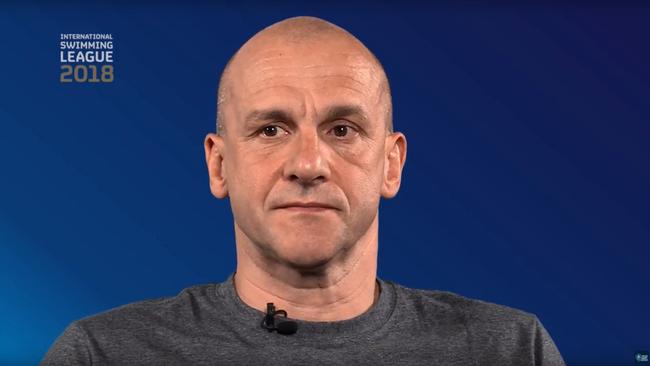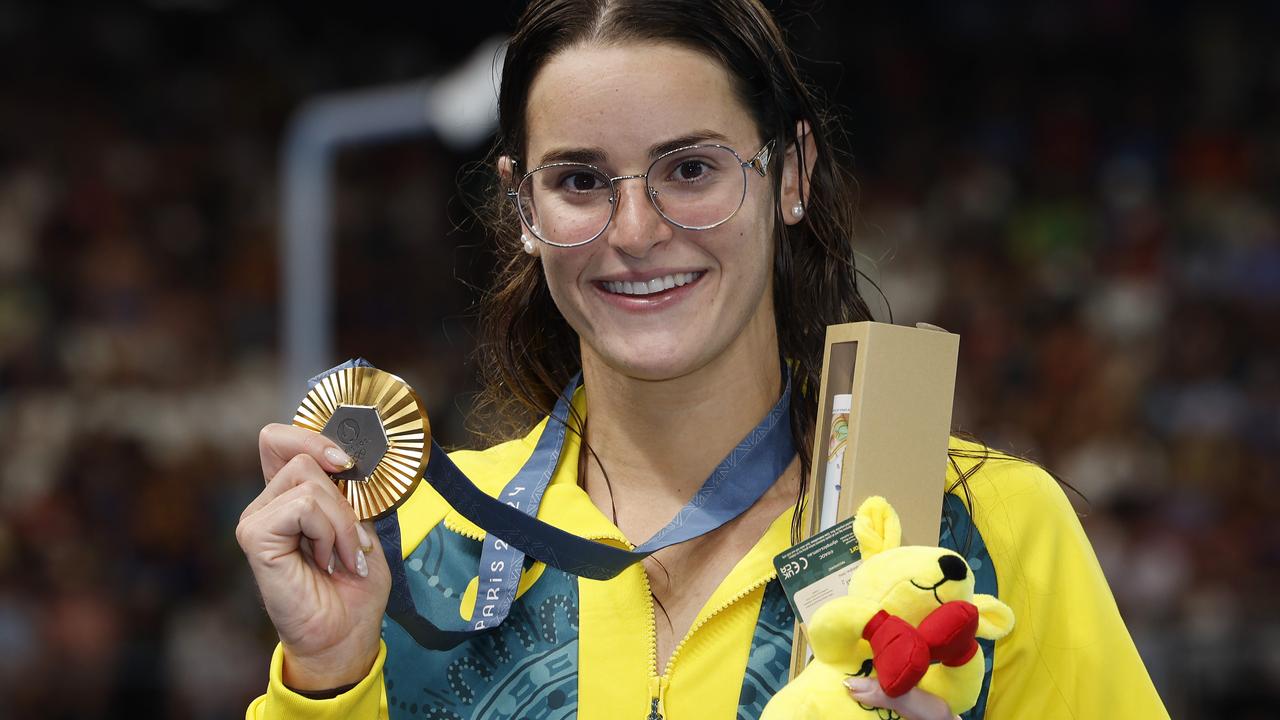The oligarch and ex-CIA agent that has swimming on the cusp of a revolution
The International Swimming League is set to blow the establishment out of the water.
The swimming world is on the cusp of a revolution. This week a crisis meeting in London with 30 of the world’s top swimmers, including Australians Emily Seebohm and Maddie Groves, threatens to pit swimmers against international officials.
At stake is the professional future of the sport, who should control commercial-style competitions, and whether athletes should financially benefit from their labours. Will it be swimsuits or the blazers that grab power?
The meeting has come about after a private consortium, called International Swimming League (ISL), led by a Ukrainian-Russian energy backer Konstantin Grigorishin and an ex-CIA operative, Daniel Hoffman, wanted to establish an elite team swimming competition across the globe.
But after being rebuffed by the world swimming authority, FINA, which demanded a reported US$50m fee and threats of two year bans to swimmers if they co-operated, the swimmers have hit back.
In echoes of the rugby league super league war of the early 1990s or even the World Series Cricket split in the late 1970s, the athletes are fed up, say insiders. Dozens of the sport’s biggest stars have arrived in London to consider their next steps. Olympic champions Sarah Sjostrom, Federica Pellegrini, Katinka Hosszu, Adam Peaty, Gregorio Paltrinieri, Ryan Murphy, Cameron van der Burgh and Chad le Clos have arrived to boost the rebel cause.
Australian multiple world record holder Cate Campbell was one of the first swimmers to speak out for the ISL and about FINA’s financial disbursements, claiming that people got very rich from swimming ‘’but it’s not the athletes’’.
The champion British breaststroker Adam Peaty has demanded change within FINA saying that swimming was fifty years behind the times and executives needed to be more conversant with the athletes.
The swimmers have been complaining that the FINA calendar is predictable and dated; the money is quarantined to fund lavish travel of bureaucrats with little reward for swimmers trying to eke a living. Long standing swimming journalist Craig Lord said that FINA earned about $118 million in gross revenues from all aquatics events in 2016 and 2017 yet paid only 12.5 per cent of that to athletes in the form of prize money.
The immediate outcome of this London meeting will be to create a swimmers union, the Professional Swimmers’ Association and to put further pressure on FINA, and ultimately the International Olympic Committee.

A release by the ISL says: ‘’Having a collective voice will help the swimmers create the foundation for a better future, both during and after their sports career. This is moment when athletes can make history as the pioneers who changed their sport for the better.’’
ISL had wanted to set up a global team based swimming competition — providing the world’s best swimmers with 50 per cent of the event income, but was forced to row back on its first $US2.1m competition, due in Turin this week, after the FINA threats.
But as a consequence, this month three top flight swimmers took FINA to court in the United States, arguing that FINA’s actions breached antitrust legislation.
However in Europe, a recent legal case involving two Dutch speed skaters, Mark Tuitert and Niels Kerstholt, has opened up opportunities for private organisations to stage rival sporting competitions.
Twelve months ago the European Commission competition commission ruled against the International Skating Union because it had a monopoly. The commission ruled that international federations had to be objective, transparent and non discriminatory when considering outside events.
At the time the International Olympic Committee president Thomas Bach attacked the decision saying European sport was now at risk and that the commission had been “treating a social movement (sports organisations) like a car manufacturer”.
Mr Grigorishin, the ISL founder and keen swimming enthusiast, said swimming had been ignoring global developments that sport is entertainment and that online streaming of live sport was the way of the future.
“Sport is a show,’’ he said, adding “it’s big business and sport currently generates a trillion dollars in added value which is one per cent of global GDP’’.
While sports events account for around $US100billion only, he said other aspects were lucratively leveraging off the sport.
In a social media interview to promote his concept of the ISL he said: “Sport is big business. Media rights, sponsorship, ticket sales merchandising makes about $US100bn, sporting equipment and sportswear makes about $US300bn, sporting infrastructure $US200bn and sports supplements and nutrition makes $US150-200bn a year. It’s a bit grey, but about US$200bn is made from bookmaking (on sport) and the growth of this business is 7-8 per cent annually.’’
Mr Grigorishin’s background is in the energy and metals markets. Forbes magazine values his assets, including a $300m art collection, at $US1.3bn.
Several years ago, when based in Moscow, Mr Grigorishin had issues with the Russian tax office which seized some of his art collection as down payment of 675 million roubles ($11.5m) in owed taxes. Then last year he was embroiled in an England High Court commercial court dispute with two former business partners that resulted in $US300m of his assets being frozen.
His co-adviser in the ISL is Hoffman, who was the CIA station chief in Moscow for five years.
FINA has responded to the threat of the ISL insisting that “aquatics athletes are at the core of FINA activities’’. It has argued that FINA world championships offered prize money and that $38m over four years had been allocated to its development program to help swimmers across the globe.
Recently FINA president Julio Maglione has responded to the ISL threat with news that FINA would run its own Champions Swim Series, a team-based concept with $4m in prize money to be held early in the year.
“In its constant effort for innovation and providing new opportunities for the stars of our sport, FINA is very pleased to launch this new competition,” said Mr Maglione.
“By creating this additional elite competition, FINA will generate a true swimming show, where sport presentation and stars’ promotion are key concepts for a successful meet.”
However there is no sign at this stage that those turning up in London will take much comfort from FINA’s olive branch.



